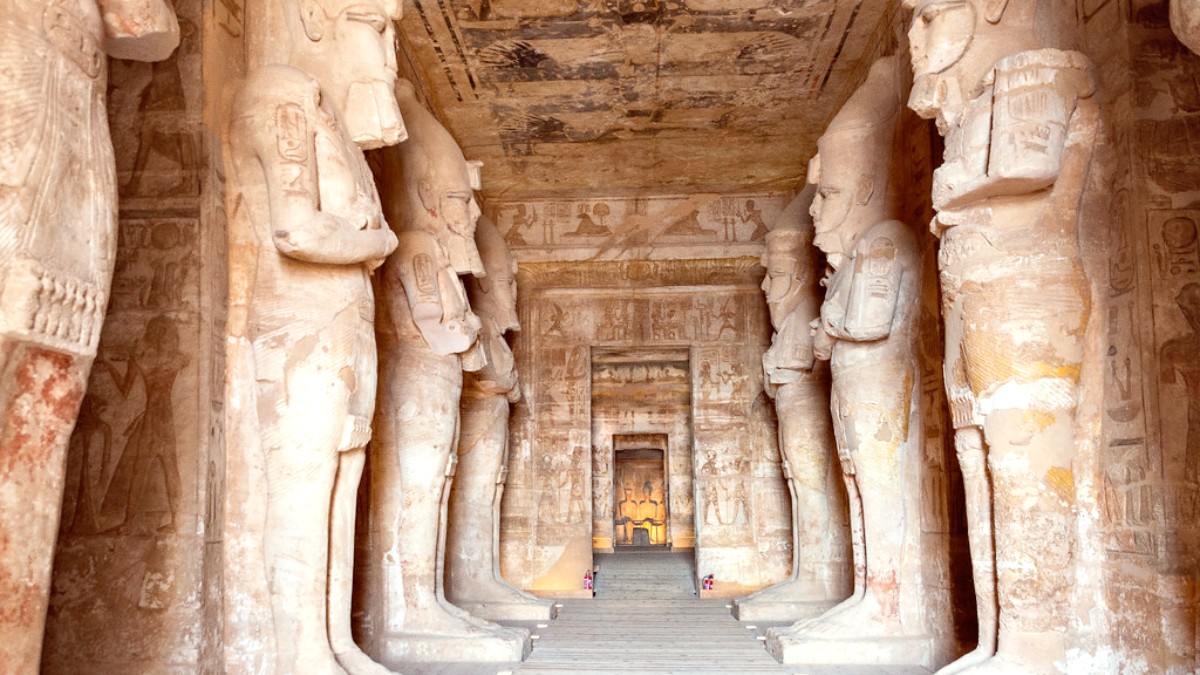
Egypt
Egypt holds three major mobile network providers: Vodafone Egypt, Orange Egypt, and Etisalat. All offer reliable service and good coverage in populated areas and along major tourist routes, including the road to Abu Simbel.
Most mid-range to luxury hotels offer free Wi-Fi for guests, though speed and reliability vary. Budget accommodations may have limited Wi-Fi, or none.
The official language of Egypt is Arabic, specifically Egyptian Arabic. In hotels, tourist shops, and with tour guides, English is widely spoken and understood.
Learning a few basic Arabic phrases is a gesture of respect that locals appreciate.
A local SIM card from Airalo or a portable WiFi device from Solis Wi-Fi keeps you online. Basic Arabic phrases make interactions pleasant. Consider Rosetta Stone for language learning.
Navigating daily operations in Egypt.
Generally open from 10:00 AM to 10:00 PM. Many shops may close for afternoon breaks (2:00 PM - 5:00 PM), especially in summer, but tourist areas stay open late.
Typically open Sunday through Thursday, from 8:30 AM to 2:00 PM. Banks are closed on Fridays and Saturdays.
Abu Simbel temples generally open from 6:00 AM to 5:00 PM (or 6:00 PM in summer). Early opening aids sunrise tour arrivals.
Automated Teller Machines are widely available in Aswan and other major towns, outside bank branches, in shopping centers, and at major hotels.
Some smaller businesses, local restaurants, or specific services have reduced hours or close entirely during the peak summer heat (June-August).
Check holiday calendars to anticipate changes in operating hours and transport availability.
Interactions respectful, leaving a positive impression.
A handshake is a common greeting among men. When greeting a woman, waiting for her to offer her hand first is best; if she does not, a nod or polite verbal greeting is appropriate.
Modesty matters. Both men and women should aim for respectful dress, especially when outside tourist resorts or visiting religious sites.
Use your right hand for eating, especially if sharing food from a communal dish; the left hand holds unclean status. Wait for your host or the most senior person to invite you to eat.
Temples: Purchase a photography ticket for photos inside temples. Flash photography is usually forbidden for the protection of ancient colors and reliefs.
A mindful approach to local customs creates a positive travel experience for all.
Mobility challenges may make navigation difficult in Egypt, including Abu Simbel, due to infrastructure limitations.
Egypt's infrastructure, including historical sites and public transport, generally lacks full equipment for travelers with mobility challenges.
Many ancient sites, due to their age and preservation methods, have limited accessibility. Ramps or elevators are rare.
Specific services for travelers with visual or hearing impairments are limited.
Consult specialized tour operators focusing on accessible travel in Egypt.
Travelers with specific mobility needs benefit from detailed planning or specialized tour assistance.